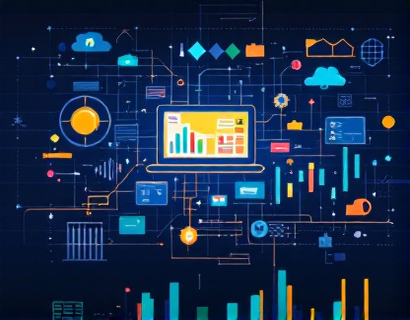Embark on a Transformative Journey with Premier AI Innovations
In an era where technology is rapidly reshaping industries, the integration of artificial intelligence (AI) stands out as a pivotal force driving transformation and innovation. This article delves into the realm of AI services, showcasing the latest advancements that are redefining how businesses operate and succeed across diverse sectors. Whether you are a tech enthusiast, a developer, a business leader, or an industry pioneer, this comprehensive guide offers insights into the top-tier AI solutions designed to enhance productivity and propel your organization forward.
Understanding the AI Landscape
The landscape of AI is vast and ever-evolving, encompassing a wide range of technologies from machine learning and natural language processing to computer vision and robotics. Each of these subfields offers unique capabilities that can be harnessed to solve complex problems and create value. Machine learning, for instance, enables systems to learn from data and improve over time without being explicitly programmed. Natural language processing allows machines to understand, interpret, and generate human language, facilitating more natural interactions between humans and technology. Computer vision empowers machines to interpret and make decisions based on visual data, while robotics combines these technologies to create intelligent machines capable of performing tasks in physical environments.
Enhancing Productivity with AI
One of the most significant impacts of AI is its ability to enhance productivity across various industries. In manufacturing, AI-driven predictive maintenance can reduce downtime and maintenance costs by predicting equipment failures before they occur. This proactive approach ensures that machinery operates at optimal efficiency, minimizing disruptions and maximizing output. In the healthcare sector, AI algorithms can analyze vast amounts of medical data to assist doctors in making more accurate diagnoses and personalized treatment plans, thereby improving patient outcomes and operational efficiency.
In the realm of finance, AI-powered systems can automate routine tasks such as data entry and fraud detection, freeing up human resources to focus on more strategic activities. This not only speeds up processes but also reduces the likelihood of human error. For retail businesses, AI can optimize inventory management and customer service through chatbots and recommendation systems, leading to enhanced customer satisfaction and increased sales.
Driving Success with AI Solutions
To truly harness the potential of AI, organizations must adopt tailored solutions that address their specific needs and challenges. The following sections highlight some of the key AI services that are transforming industries and driving success.
1. Intelligent Automation
Intelligent automation leverages AI to streamline and optimize business processes. Robotic Process Automation (RPA) is a subset of intelligent automation that uses software robots to mimic human actions in digital environments. These robots can perform repetitive and rule-based tasks with high accuracy and speed, reducing the need for manual intervention. For example, in the banking industry, RPA can automate tasks such as loan processing, customer onboarding, and compliance reporting, significantly reducing operational costs and improving service delivery.
Beyond RPA, AI-driven automation tools can analyze and optimize workflows, identify bottlenecks, and suggest improvements. This holistic approach ensures that businesses not only automate tasks but also enhance their overall operational efficiency and agility.
2. Advanced Analytics and Insights
AI-powered analytics platforms provide deep insights into business data, enabling organizations to make data-driven decisions. Machine learning algorithms can uncover patterns and trends that might go unnoticed by human analysts, leading to more informed strategic choices. For instance, in the e-commerce sector, AI can analyze customer behavior data to predict trends, personalize marketing campaigns, and optimize product recommendations, resulting in higher conversion rates and customer loyalty.
In the manufacturing industry, advanced analytics can optimize supply chain management by predicting demand, managing inventory levels, and identifying potential disruptions. This proactive approach helps businesses maintain a competitive edge and ensure smooth operations.
3. Customer Experience Enhancement
AI is revolutionizing the way businesses interact with customers, offering personalized and seamless experiences. Chatbots powered by natural language processing can provide 24/7 customer support, handling queries and resolving issues in real-time. These AI assistants not only improve customer satisfaction but also reduce the workload on human support teams.
Personalization is another area where AI shines. By analyzing user data and behavior, AI can create tailored experiences across various touchpoints, from product recommendations to content curation. In the entertainment industry, for example, AI-driven recommendation systems can suggest movies, music, and shows based on individual preferences, enhancing user engagement and retention.
4. Cybersecurity and Risk Management
With the increasing sophistication of cyber threats, AI plays a crucial role in enhancing cybersecurity measures. AI-powered security systems can detect and respond to threats in real-time, identifying anomalies and potential breaches before they cause significant damage. Machine learning algorithms can analyze vast amounts of data to recognize patterns indicative of malicious activity, allowing for proactive threat mitigation.
In the financial sector, AI-driven risk management tools can assess and monitor risks more effectively, ensuring compliance with regulatory requirements and protecting sensitive data. These tools can also help in fraud detection by analyzing transaction patterns and identifying suspicious activities.
5. Smart Cities and Infrastructure
The application of AI extends beyond traditional industries to urban planning and infrastructure management. Smart city initiatives leverage AI to optimize resource allocation, improve public services, and enhance the quality of life for citizens. For example, AI can be used to manage traffic flow, reducing congestion and lowering emissions. Smart grids powered by AI can efficiently distribute energy, balancing supply and demand in real-time and integrating renewable energy sources.
In public safety, AI-driven surveillance systems can monitor and analyze video feeds to detect and respond to incidents promptly. These systems can also predict crime hotspots, enabling law enforcement to allocate resources more effectively.
Building a Future with AI
The potential of AI to transform industries is immense, but realizing this potential requires a strategic approach. Organizations must carefully evaluate their needs and select AI solutions that align with their goals and capabilities. Collaboration between tech leaders and industry experts is essential to drive innovation and ensure that AI implementations deliver tangible value.
Education and training are also critical components of this transformation. As AI technologies continue to evolve, it is imperative for professionals to upskill and stay abreast of the latest developments. This not only enhances individual capabilities but also fosters a culture of innovation within organizations.
In conclusion, the integration of AI services offers a pathway to unprecedented levels of productivity, efficiency, and success. By embracing these advancements, businesses can not only stay competitive but also lead the charge in shaping the future of their respective industries.










































